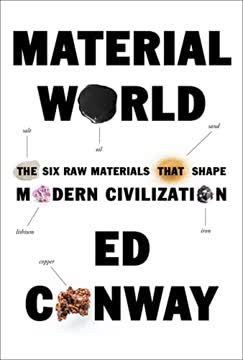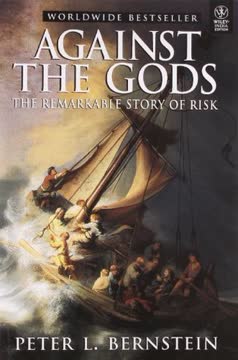Key Takeaways
1. Probabilistic Thinking: Navigating Uncertainty in Markets and Policy
What has guided my career in both business and government is my fundamental view that nothing is provably certain.
Decision-making framework. Rubin emphasizes a probabilistic approach to decision-making, both in finance and government. This involves identifying all relevant factors, assigning probabilities to each, and recognizing the inherent uncertainties involved. This framework acknowledges that perfect knowledge is unattainable, and decisions must be based on the best available information and judgment.
Application in arbitrage. Rubin's experience in risk arbitrage at Goldman Sachs honed his probabilistic thinking. He learned to evaluate the odds of various outcomes, assess potential gains and losses, and make decisions based on the most likely scenario, even when faced with incomplete information. This approach was crucial in navigating the complexities of the Mexican peso crisis and other economic challenges.
Beyond formulas. While probabilistic thinking involves analysis, it's not reducible to a mathematical formula. Subjective judgments, instinct, experience, and "feel" are essential components of sound decision-making. The ultimate decision reflects a combination of analytical rigor and intuitive understanding.
2. The Interplay of Global Economics and Domestic Policy
Today, markets are more important to the lives of more people than at any previous time in history.
Globalization's impact. Rubin underscores the increasing interconnectedness of global markets and their impact on domestic policy. Events in distant countries can have significant consequences for the U.S. economy, affecting jobs, living standards, and growth. This necessitates a deep understanding of international economics and a willingness to engage with global issues.
Mexico as a case study. The Mexican peso crisis of 1995 exemplified the heightened risks of a global economy. A financial crisis in Mexico could have triggered a contagious decline in emerging markets, set back market-based economic reforms, and negatively impacted American growth and prosperity. This underscored the need for proactive intervention to protect U.S. interests.
Limited control. Despite the importance of global economics, the ability to address economic crises beyond our borders is limited. The success of any intervention depends on the policy choices made by the affected country. International assistance can provide support, but it cannot substitute for sound domestic policies.
3. The Importance of Credibility and Communication in Leadership
Confidence and credibility are powerful values.
Building trust. Rubin emphasizes the importance of credibility and communication in leadership, particularly in times of crisis. Public officials must be able to accurately describe what is happening without being inflammatory. Softening concerns and using calculated ambiguity can be necessary to navigate the twin hazards of complacency and panic.
The power of words. The words public officials use can make an enormous difference, especially in the realm of economics. Inflammatory language can provoke the very reaction one is trying to avoid. Choosing words carefully and communicating clearly are essential for maintaining confidence and stability.
Consistency is key. Maintaining a consistent message, even when faced with changing circumstances, is crucial for building credibility. This requires discipline and a willingness to avoid short-term political gains in favor of long-term economic stability.
4. Wall Street to Washington: Bridging Two Worlds
An integrated understanding of both worlds is necessary to deal with the economic and political issues we face.
Crossing over. Rubin's career path, from Wall Street to the White House and back again, provided him with a unique perspective on the interplay between markets and government. He argues that an integrated understanding of both worlds is necessary to deal with the complex economic and political issues we face.
Different objectives. Decision-making is more challenging in government because disagreement is not just about means but about objectives. The private sector focuses on profitability, while the public sector operates with many equally legitimate objectives. This requires a different approach to leadership and a willingness to compromise.
Value of experience. Rubin's experience in the financial world proved valuable in Washington. His probabilistic thinking, analytical rigor, and understanding of market psychology helped him navigate complex policy challenges and make informed decisions.
5. The Inevitable Cycle of Market Excesses and Corrections
Modern capital markets—with their many interrelationships, size, and speed—combined with the inherent human tendency to go to excess, create a seemingly inevitable tendency toward periodic destabilization that is difficult to anticipate and prevent.
Human nature's role. Rubin notes that financial markets are driven by human nature and have a propensity to go to excess. This creates a seemingly inevitable tendency toward periodic destabilization that is difficult to anticipate and prevent. Greed, fear, and complacency are constants of human nature that can lead to market bubbles and crashes.
The illusion of control. During periods of economic expansion, there is a tendency to believe that the business cycle has been tamed and that prosperity will continue indefinitely. This can lead to complacency and a disregard for risk, setting the stage for a market correction.
Learning from history. Despite the cyclical nature of markets, people often fail to learn from past episodes. They tend to think, "This time it's different," and develop convincing rationales for why the old rules no longer apply. This can lead to a dangerous disregard for risk and an overestimation of future returns.
6. The Limits of Government Intervention and the Power of Ownership
The money we lent to Mexico could not have had the desired effect without the policy choices the Mexican government made.
Policy choices matter. Rubin emphasizes that the ability to address economic crises beyond our borders is limited. The money lent to Mexico could not have had the desired effect without the policy choices the Mexican government made. This was the crucial element, both because of the effects of individual policies and because of the confidence engendered by the more amorphous cumulative sense that the Mexicans were serious about getting their act together.
The power of ownership. The Mexican government's commitment to economic reform was essential for restoring confidence and attracting private capital. Without that commitment, no amount of external assistance would have been sufficient to solve the crisis. This underscores the importance of countries taking ownership of their own economic destinies.
Moral hazard. Government intervention in markets can create a problem of moral hazard, where investors take on excessive risk because they expect to be bailed out. This can lead to future crises and undermine the discipline of the market-based system. Balancing the need for intervention with the need to avoid moral hazard is a constant challenge for policymakers.
7. The Enduring Value of Relationships and Mentorship
You learn more by listening than by talking, and I’ve had the opportunity to listen to many who had much of great value to say.
Learning from others. Rubin emphasizes the importance of relationships and mentorship in his career. He was fortunate to have had colleagues and friends who, through their insight, experience, intellectual power, and philosophical mind-set, contributed to his own understanding.
The value of listening. You learn more by listening than by talking, and I’ve had the opportunity to listen to many who had much of great value to say. My hope is that the views I’ve developed through a lifetime of such interaction will be of use to others in dealing with the personal, professional, and policy challenges that lie ahead.
Mutual trust. A crucial component of relationships is the mutual trust that develops. For four and a half years, Alan, Larry, and I had breakfast or lunch at least once a week, along with many other meetings and discussions. To the best of my knowledge, nothing any of us said in any of those private meetings ever leaked out.
8. The Constant Tension Between Politics and Policy
Our politics may not be well suited to coping with the new risks of the global economy.
Political realities. Rubin acknowledges the difficulties our political processes have in dealing effectively with issues that involve technical complexities, shorter-term cost to achieve longer-term gain, incomplete information and uncertain outcomes, opportunities for political advantage, and inadequate public understanding.
Balancing act. Navigating the twin hazards of complacency and panic requires choosing words very carefully, softening concerns, and using calculated ambiguity. Explicitly raising worst fears about global contagion could create a self-fulfilling prophecy.
Finding allies. Finding effective legislative allies is key to navigating our system successfully. Some individual legislators were tremendously helpful. As I discovered, finding effective legislative allies is key to navigating our system successfully.
9. The Importance of Humility and Continuous Learning
You learn more by listening than by talking.
Questioning assumptions. Rubin emphasizes the importance of questioning assumptions and challenging conventional wisdom. He internalized the concept that you can't prove anything in absolute terms, which led him to think in terms of probabilities and trade-offs.
Openness to new ideas. The best decisions are made when those who disagree with the accepted view are encouraged to speak out. So if a meeting seemed to be moving toward a consensus, I would make a point of soliciting dissenting views. Disagreeing with me was socially approved rather than discouraged.
Continuous learning. The opportunity to reflect back systematically has led to a refinement and a greater rigor in many of the views I hold. The ideas expressed here are mine, but on virtually every matter they have been strongly influenced by many others.
10. The Role of Chance and the Value of Perspective
People who know me are familiar with my distrust of definitive answers and my habit of asking questions.
Chance encounters. Chance plays a significant role in life, including career opportunities and policy outcomes. Being open to unexpected possibilities and adapting to changing circumstances are essential for success.
Maintaining perspective. Developing a sense of perspective can help one navigate the stresses and uncertainties of life. Recognizing that, in the totality of time and space, the significance of any one event shrinks can provide a sense of calm and detachment.
Focus on the process. Decisions shouldn't be evaluated solely on the basis of results. Even the best decisions about intervention are probabilistic and run a real risk of failure, but the failure wouldn't necessarily make the decision wrong.
Last updated:
Review Summary
In an Uncertain World receives mixed reviews. Some praise Rubin's insights on economics, decision-making, and his experiences in the Clinton administration. Others find the writing dry and lacking depth. Readers appreciate his probabilistic thinking approach and discussions of financial crises. However, many criticize the book for being dull, overly focused on name-dropping, and failing to provide substantial analysis. The book's dated economic perspectives and Rubin's handling of later financial crises also draw criticism. Overall, it's considered informative but not particularly engaging for general readers.
Similar Books










Download PDF
Download EPUB
.epub digital book format is ideal for reading ebooks on phones, tablets, and e-readers.





